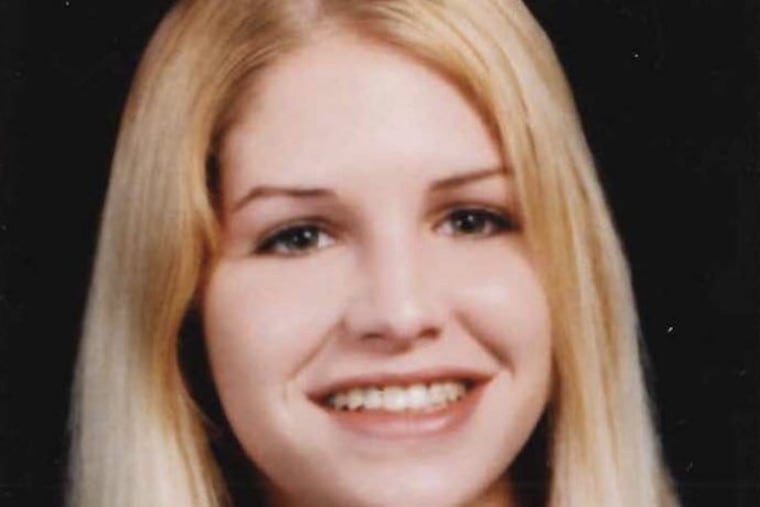$7 million settlement over Delco inmate's suicide
An Upper Darby woman plagued by mental illness hung herself at the long-troubled George W. Hill Correctional Facility in 2015.

Janene Wallace's final 52 days on Earth played out in the same torturous loop.
Lost in the grip of depression and paranoia, Wallace, 35, spent 23 hours a day locked in solitary confinement at the George W. Hill Correctional Facility in Delaware County, where she was being held in 2015 on a probation violation.
As Wallace's condition deteriorated, a guard at the prison allegedly taunted the Upper Darby woman and encouraged her to kill herself. On May 26, Wallace hanged herself with a bra she tied to an air vent in her cell.
That appalling yet familiar narrative formed the foundation of a lawsuit attorneys David Inscho and Shanin Specter filed two years ago on behalf of Wallace's estate against Community Education Centers, a for-profit prison company that ran Hill at the time.
The lawsuit was recently settled for $7 million, Inscho and Specter announced Thursday.
Inscho said Wallace's mother, Susanne, reached out to him to learn more about her daughter's death. Wallace had no history of violence or misbehavior at Hill, but was denied basic medical care, he said.
"What struck me was that Susanne wanted answers that no one in Delaware County or at the prison would tell her," he said. "Janene's greatest crime was having a mental illness."
Inscho said Wallace was one of about 700 inmates at Hill who have mental illnesses. Those in solitary confinement are supposed to have daily medical checks, psychiatric evaluations after 30 days, and be evaluated by security personnel to see if they should remain in isolation, he said.
"Those are the basic ground rules. None of them were followed with regard to Janene," Inscho said.
Wallace was arrested in 2013 on harassment charges that were related to her paranoia, Inscho said. She violated the terms of her probation by traveling across the country, which led to her being sent to Hill.
A few days before Wallace's death, she was seen by a psychiatrist who recommended she be returned to the general population, according to the lawsuit Inscho and Specter filed in Philadelphia. But she was allegedly returned to solitary confinement after she appeared to be anxious and agitated, and spent Memorial Day weekend — 85 straight hours — alone behind bars.
On the day Wallace took her life, she got into a verbal argument with a corrections officer.
"The guard called her a 'dirty b–' and told her to kill herself," Inscho said. "Janene yelled out that she was going to choke herself, and the guard said, 'Go ahead and choke yourself.'"
That guard and two others were ultimately fired.
The 1,883-bed prison has been plagued in the past with similarly disturbing incidents. At least 12 inmates died at Hill between 2002 and 2008 when it was run by the GEO Group, one of the leading private prison companies in the world.
GEO — created decades ago by Upper Darby native George Wackenhut — abandoned its contract in 2009, following a raft of wrongful death lawsuits, clearing the way for New Jersey-based CEC to take over.
GEO resumed control of Hill this year, after purchasing CEC for $360 million.
Pablo Paez, a spokesman for GEO, said Thursday he was unable to comment on the prison's litigation or settlement except to note that the company did not manage Hill's operations at the time of Wallace's death.
In addition to the substantial payout, Inscho said, GEO agreed to revise its suicide prevention and restricted housing policies. Going forward, mentally ill inmates will not be held in solitary confinement strictly because of symptoms related to their illnesses. Those who are will be evaluated by a psychologist within 24 hours, and medical visits will be performed three times a day. Prison officials, including the warden, will also be required to personally review and approve requests to keep inmates in solitary confinement.
The for-profit prison industry has come under increasing scrutiny in recent years over concerns about riots and a lack of access to food or medical care. Last month, the Philadelphia Board of Pensions and Retirement voted to divest $1.2 million worth of stocks it held in GEO and two other for-profit prison companies.